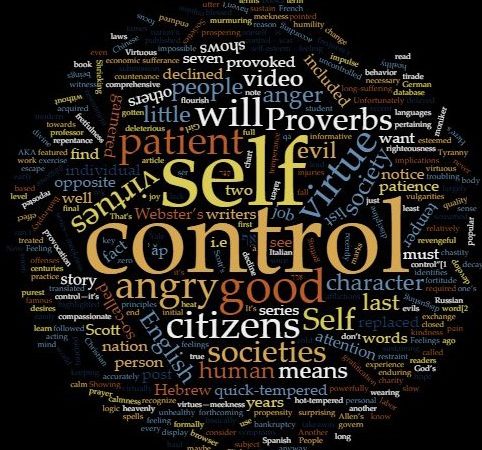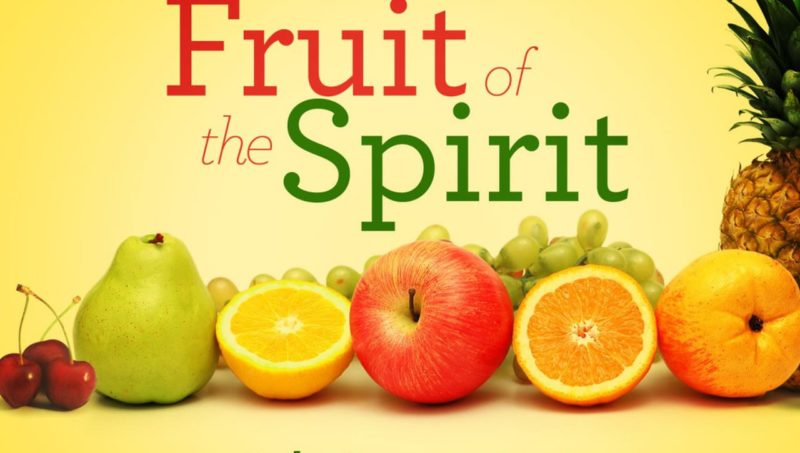Self-control —more accurately, the utter lack of self-control—was featured in Scott Allen’s recent post, “The Tyranny of Feelings.” Scott pointed his readers to the story and video of the so-called “Shrieking Girl.” That’s a recently acquired moniker for a Yale student who screamed vulgarities at an esteemed (by others, anyway) professor. She called him “disgusting” and ended her tirade with, “Now I want your job to be taken from you. I don’t want you to have this job!”
We have reposted the video below. (Click here to see it in your browser.)
If you haven’t read Scott’s article you should. He very powerfully spells out the troubling implications for a society in which “feelings have largely replaced logic and reason.” Here’s another takeaway from the same story, more at the level of the individual. On full display in the video is uncontrolled temper, the very opposite of the self-control which Proverbs enjoins. We’re seeing what columnist Dennis Prager lamented after the 2012 Sandy Hook massacre:
Instead of teaching young Americans self-control, thanks to leftist influence, we now teach them self-esteem — which has been worse than morally useless. It has been morally destructive. According to professor of psychology Roy Baumeister, one of the leading criminologists in America, few Americans have the high self-esteem that violent criminals have.
Self-control has never been a popular subject … at least not for the last 200 years.
In this final post of our series on 7 key virtues—meekness, repentance, hope, prayer, joy, righteousness, self-control—it’s informative to note that the use of all these words has declined over the last two centuries. The chart below shows the change in frequency of these terms in English books published between 1800 and 2000.
It’s not surprising to see this decline; we touched on that before. But it can’t escape our notice that the first and last virtues in our series—meekness and self-control— have received very little attention from writers. If we zoom in on those two, we find that while meekness garnered a little attention 200 years ago, and has since declined, self-control has gotten virtually zero notice from English writers. (In fact, the same is true of all the other languages included in the database: Chinese, French, German, Hebrew, Italian, Russian, and Spanish.)
Self-control may be the purest of the virtues
The seven virtues we have treated in this series come from Proverbs. Another, more famous, list is the seven so-called “heavenly” virtues. Self-control, AKA temperance, shows up in that list, too. In fact, self-control is required for the exercise of all the others: chastity, charity, diligence, patience, kindness, humility. In that sense, self-control is maybe the “purest” of the virtues. Since the fall, all human virtue has included keeping a necessary restraint on one’s desires. And a nation of citizens who practice self-control, who early learn the discipline of delayed gratification, who recognize that acting on every initial impulse is unhealthy for the individual as well as for the society … that nation is blessed. This truth was recognized early in the history of the US.
We have staked the whole future of American civilization, not upon the power of government, far from it. We have staked the future of all of our political institutions upon the capacity of each and all of us to govern ourselves, to sustain ourselves according to the Ten Commandments of God. James Madison, “Father of the U.S. Constitution” and 4th President of the United States
The term in Proverbs translated “self-control”1 means “patient, formally, slow to anger, i.e. long-suffering before getting angry.” Our English word “patience,” according to Webster’s 1828 Dictionary, means “Having the quality of enduring evils without murmuring or fretfulness; sustaining afflictions of body or mind with fortitude, calmness or Christian submission to the divine will; as a patient person, or a person of patient temper. It is followed by or before the evil endured; as patient of labor or pain; patient of heat or cold … . Not easily provoked; calm under the sufferance of injuries or offenses; not revengeful.”
The opposite, in Proverbs, is “quick-tempered” or “angry.” The Hebrew word2 means “quick-tempered, hot-tempered, i.e. pertaining to being angry with relatively little provocation.” Webster’s identifies it as “feeling resentment; provoked … Showing anger; wearing the marks of anger; an angry countenance; angry words.”
For a society to be good, just, and compassionate, her people must be good. But we know from the Bible, as well as our own experience that we human beings are not good. Our propensity is towards evil. Self-control is the virtue that tames the evil. Unfortunately, self-control is not a virtue in most societies. And even among those who consider self-control a virtue, people will find that it’s basically impossible for a human to sustain comprehensive self-control over the long haul. (It is, after all, part of the fruit of the Spirit.) Edmund Burke (1729-1797) was a British statesman and political philosopher who understood this.
Men are qualified for civil liberty in exact proportion to their disposition to put moral chains upon their own appetites …. Society cannot exist unless a controlling power be placed somewhere … It is ordained in the eternal constitution of things, that men of intemperate minds cannot be free. Their passions forge their fetters.
Less self control = more government control
The inevitable result is larger government, more government control. Internal laxity on the part of individuals erupts in external lawlessness, which requires civil authories to fill the vacuum. Robert Winthrop, (1809-1894), Speaker of the US House of Representatives, pointed out that people must be directed; if they lack self-control, they must be externally controlled.
All societies of men must be governed in some way or other. The less they may have of stringent State Government, the more they must have of individual self-government. The less they rely on public law or physical force, the more they must rely on private moral restraint. Men, in a word, must necessarily be controlled either by a power with them or a power without them; either by the Word of God, or by the strong arm of man; either by the Bible or the bayonet. It may do for other countries and for other governments to talk about the State supporting religion. Here, under our free institutions, it is Religion which must support the state.
In the modern world, self-esteem—feeling good about oneself—is the virtue. Feeling good has replaced being good. The exchange will have a deleterious effect on our societies. In fact, to exchange self-control for self-esteem is to become a slave. Our friend Dr. Elizabeth Youmans, founder and president of Chrysalis International, makes this point.
The Christian principle of self-government is God ruling internally from the heart of the believer. In order to have true liberty, man must WILLINGLY (voluntarily) be governed INTERNALLY by the Spirit and Word of God rather than by external forces. Government is first internal (causative), then extends outwardly (effect).
For societies to flourish, they must focus on the character of her citizens. People who govern themselves based on God’s laws and principles are virtuous citizens. Virtuous citizens comprise healthy and prospering societies. Societies that do not work to develop the character of their people will witness all the symptoms of decay. Bankruptcy in the character of a nation’s citizens will end in economic bankruptcy as well.
- From a forthcoming book by Darrow Miller and Gary Brumbelow
[1] אָרֵךְ אַף (ʾā∙rēḵ ʾǎp̄)
[2] קָצֵר אַף (qā∙ṣēr ʾǎp̄)







